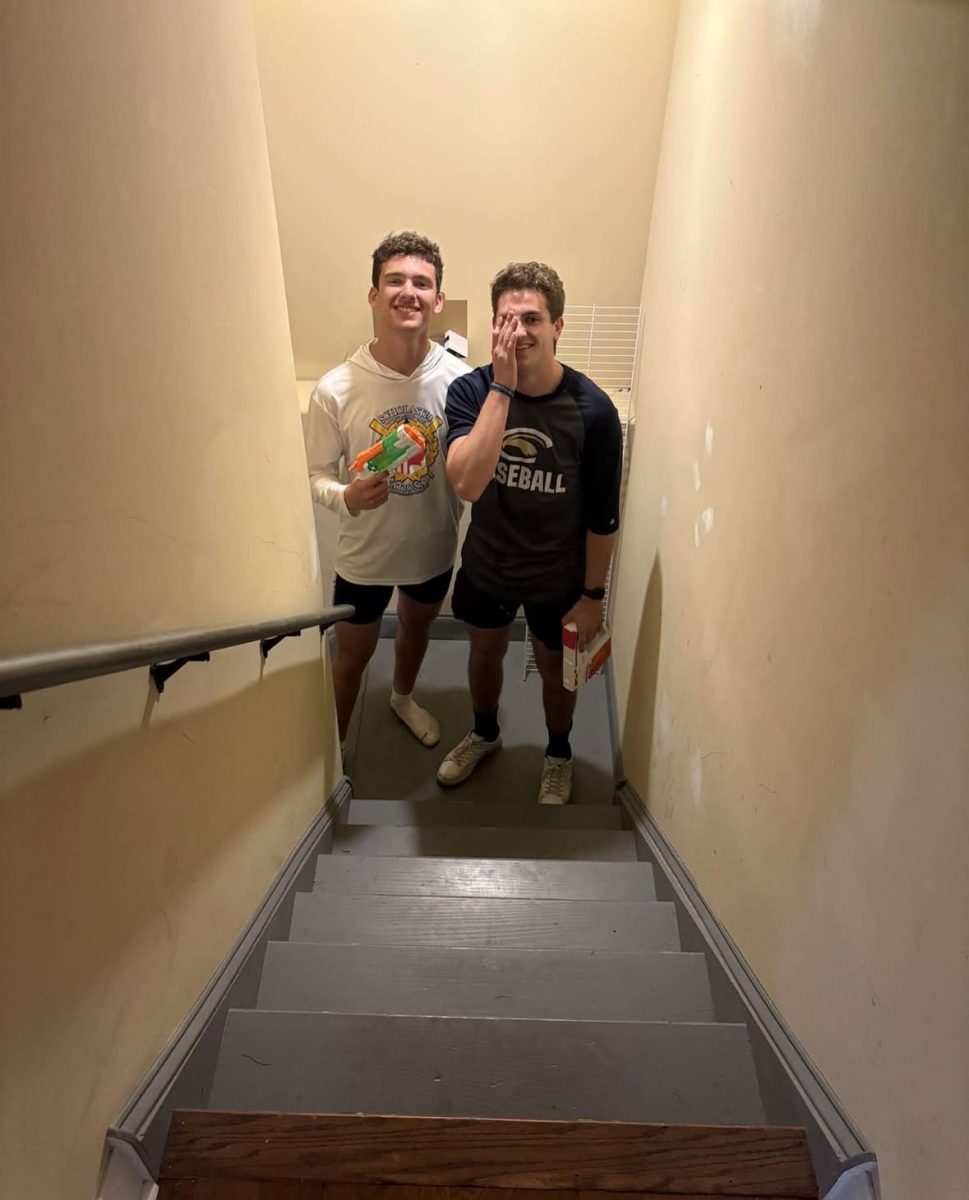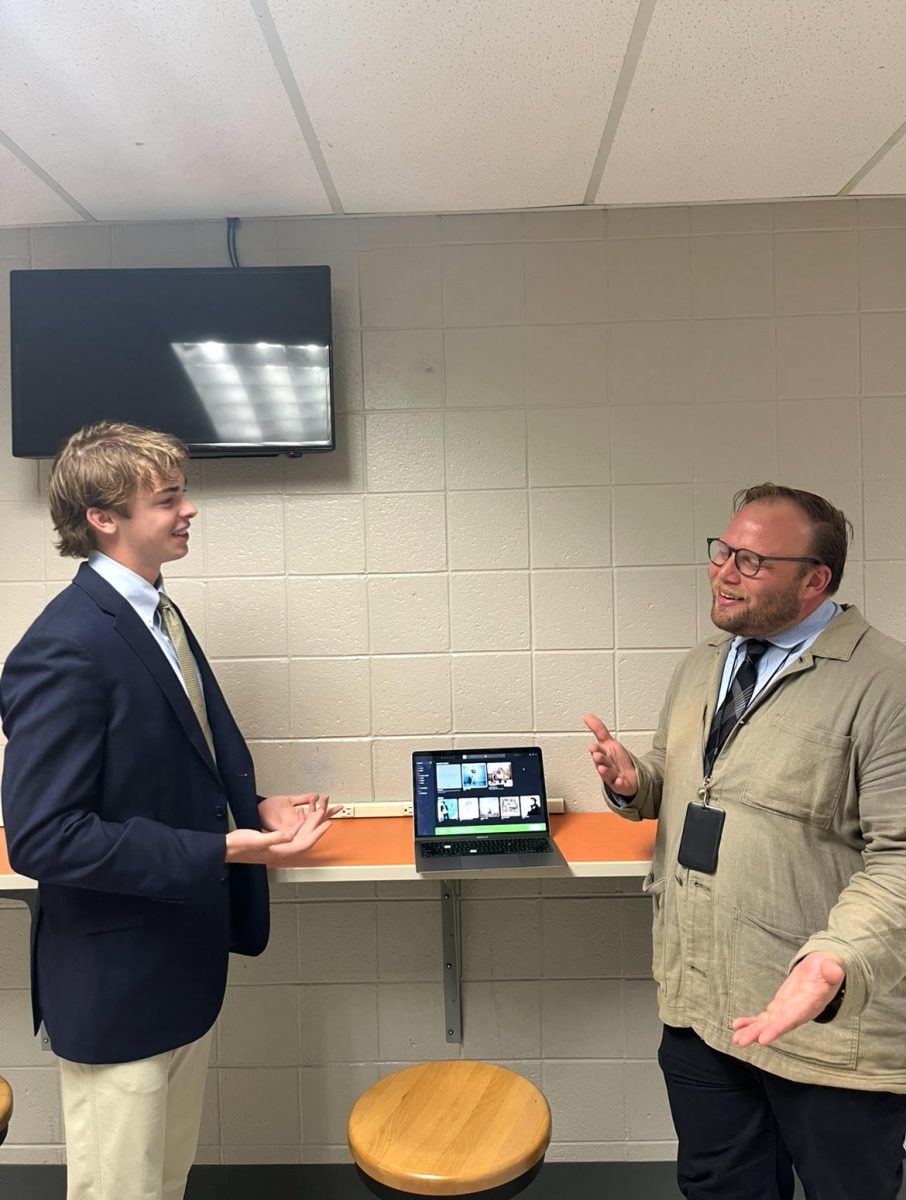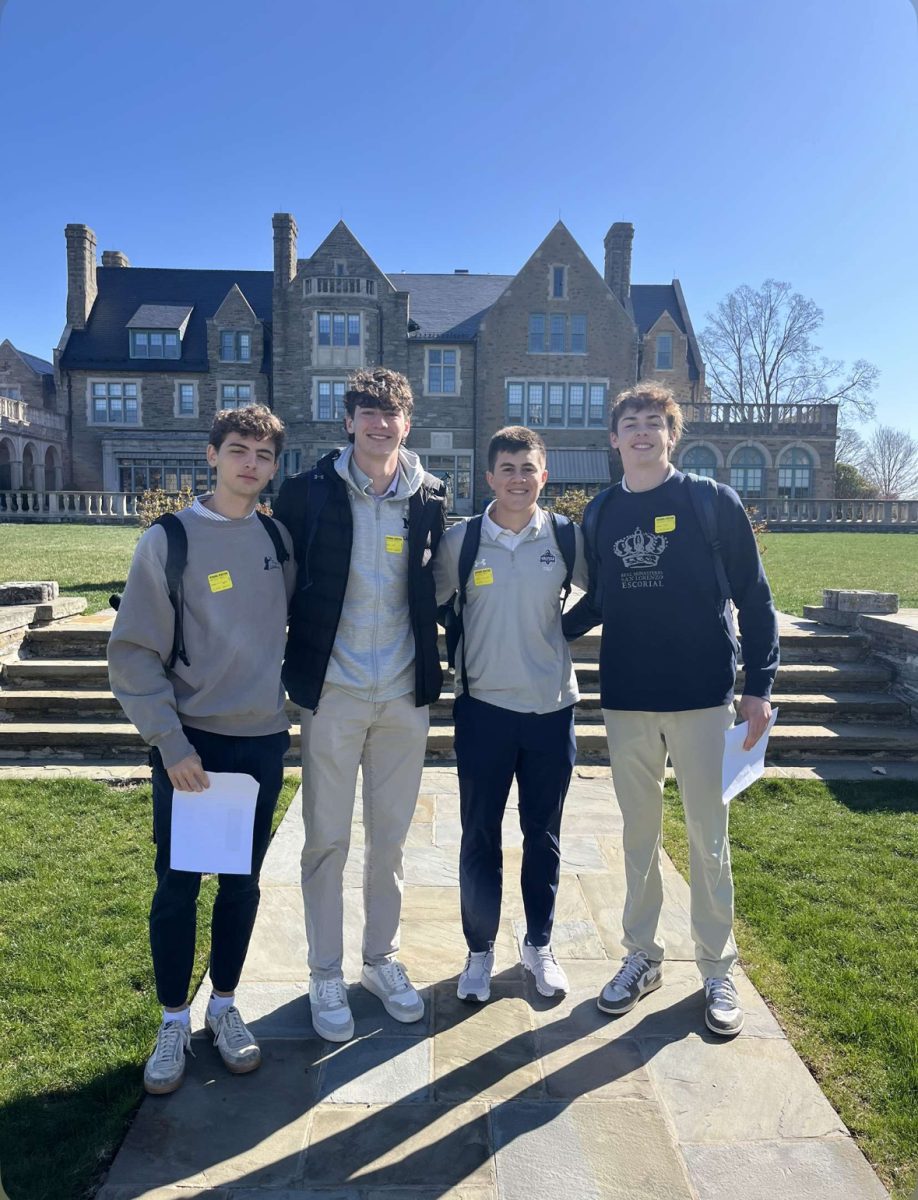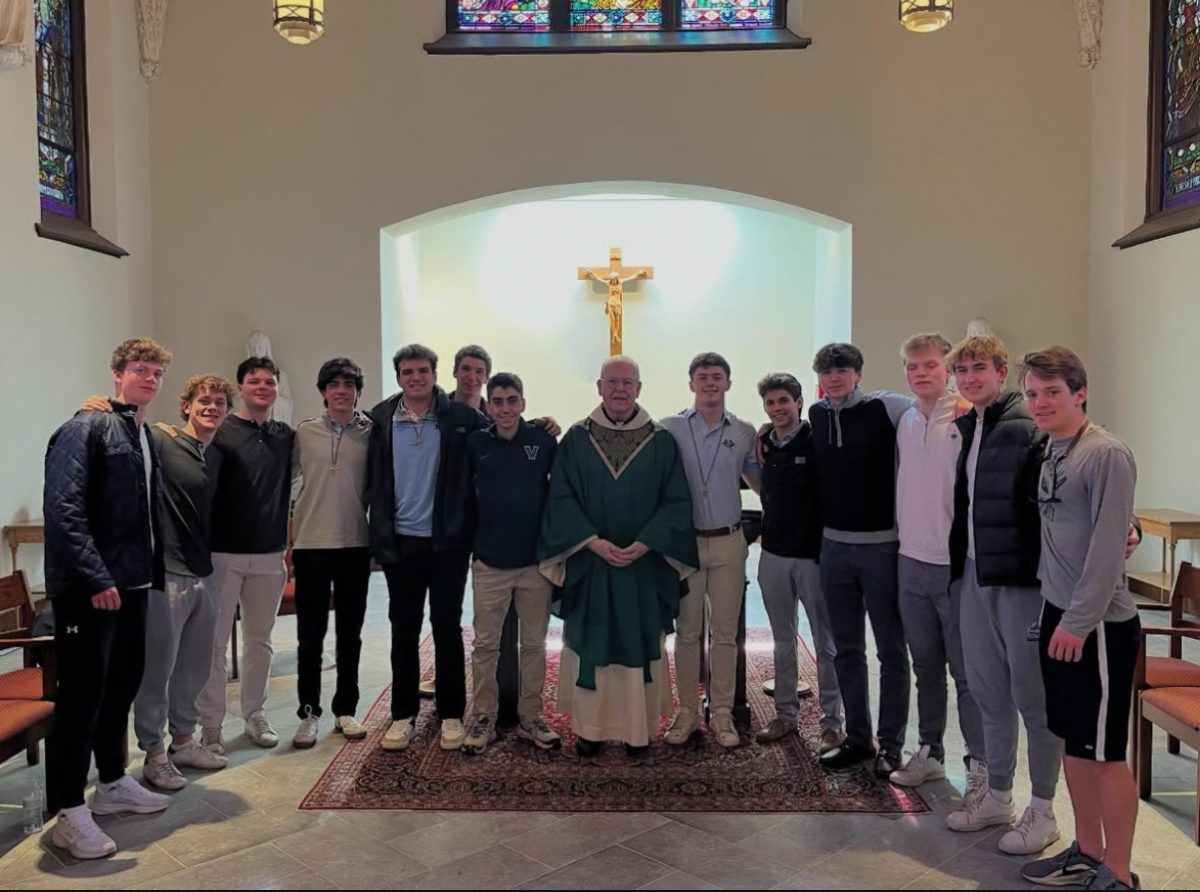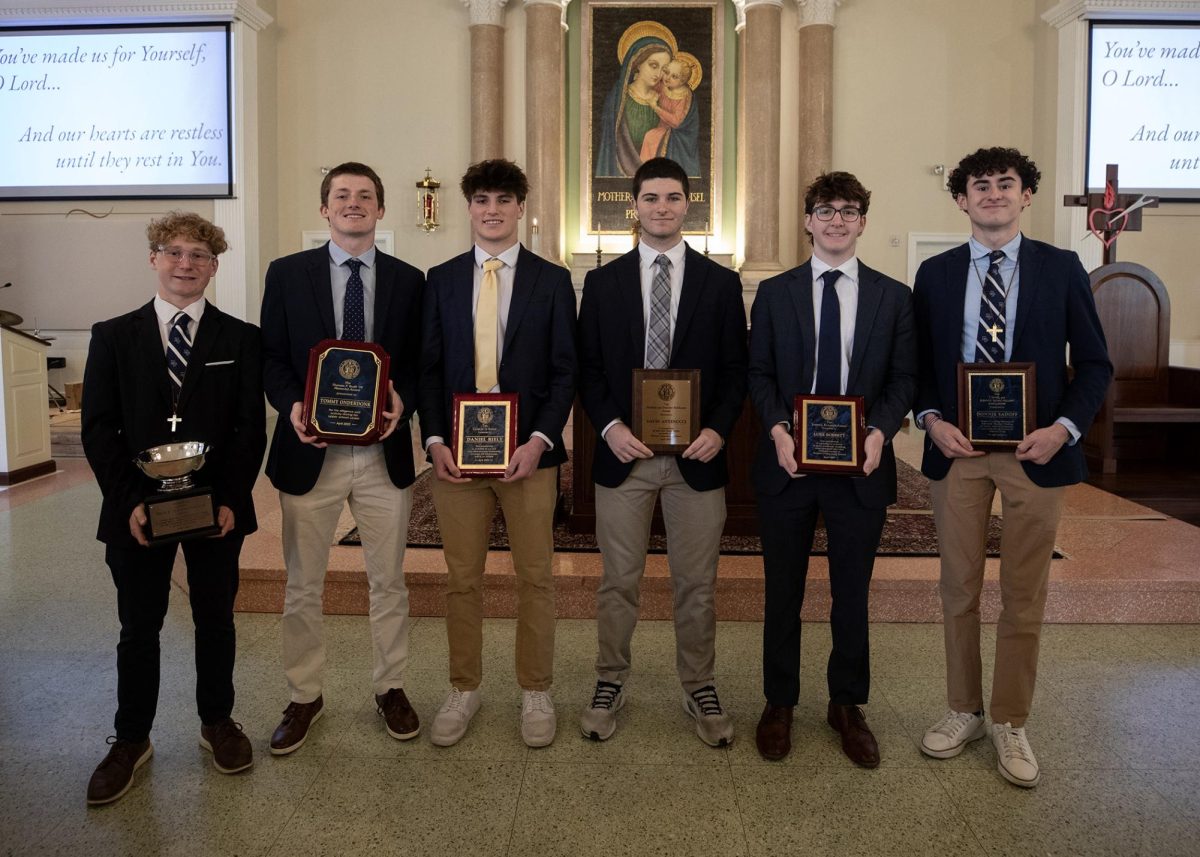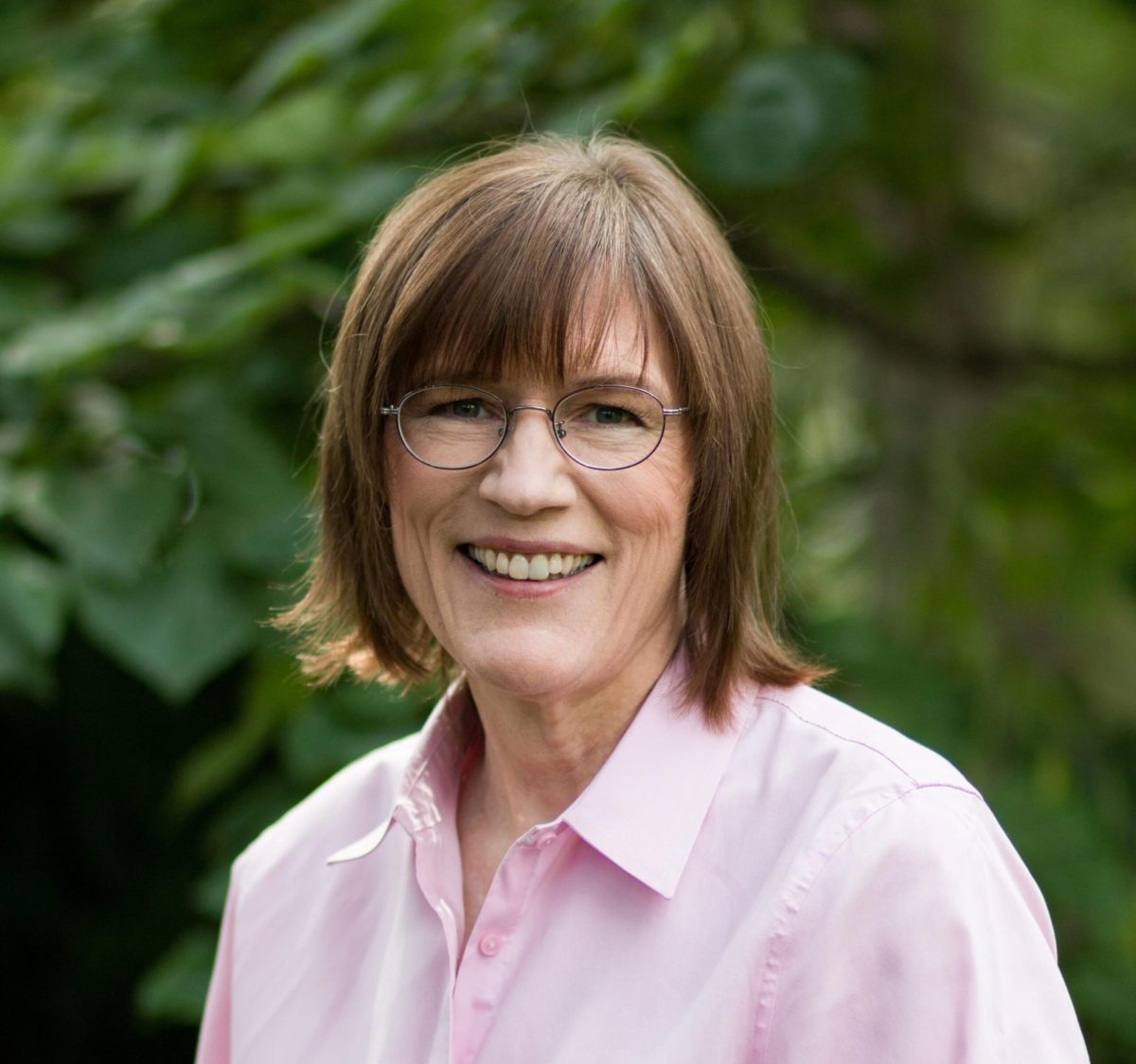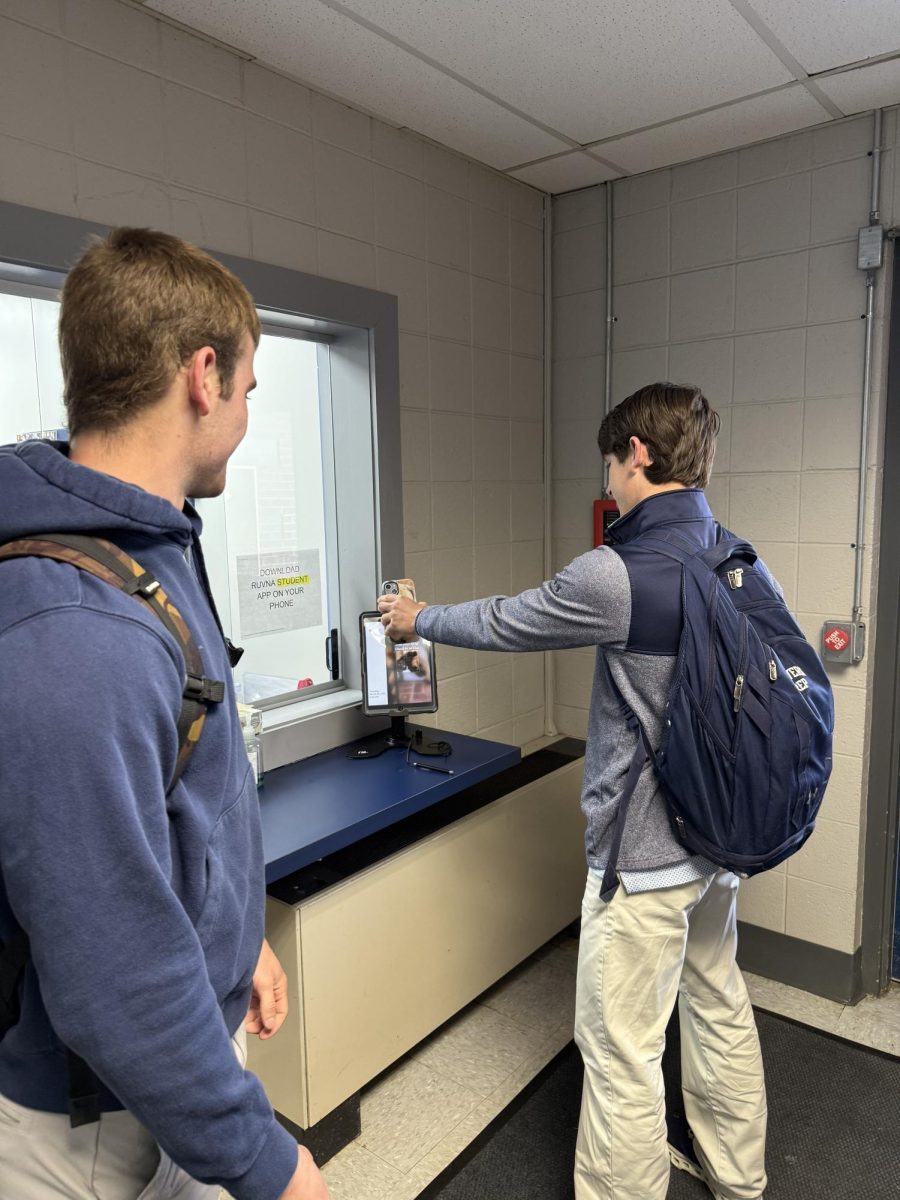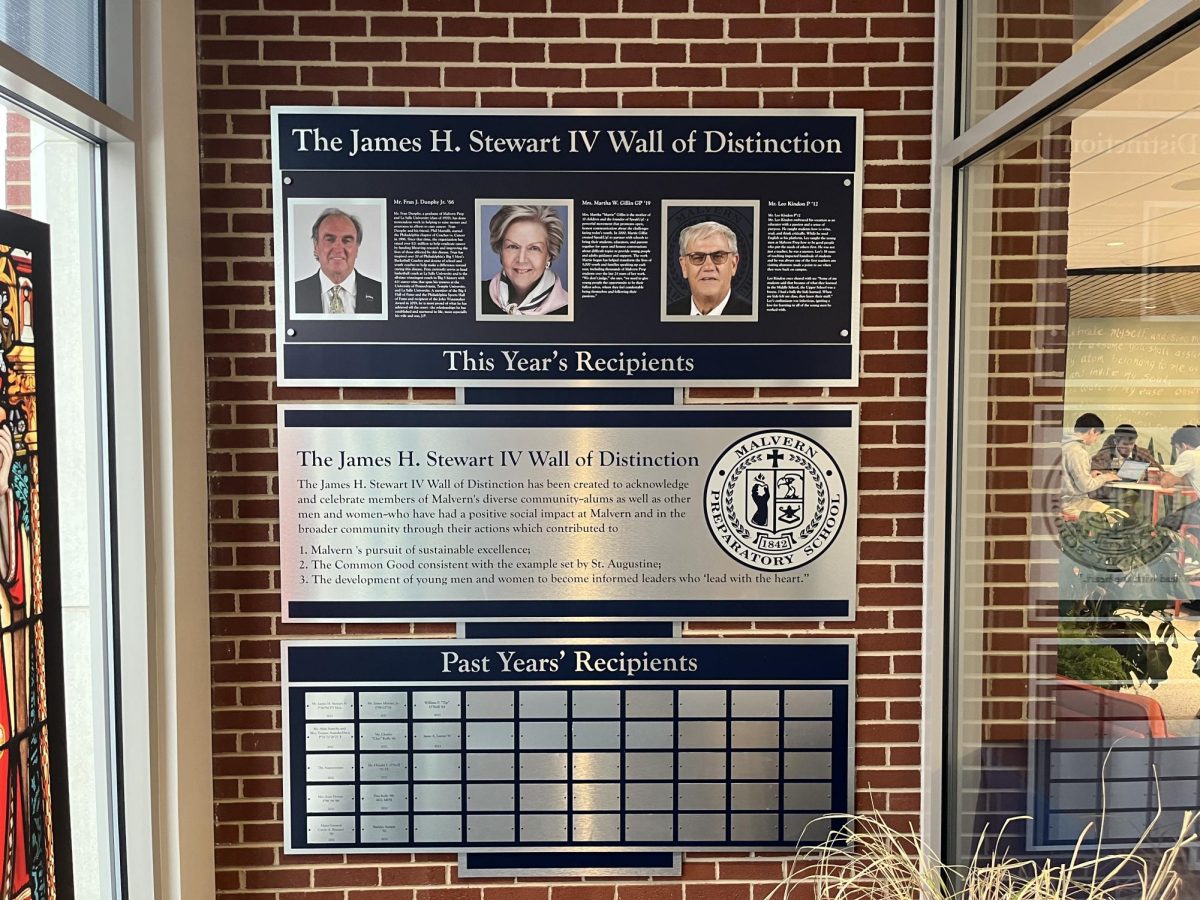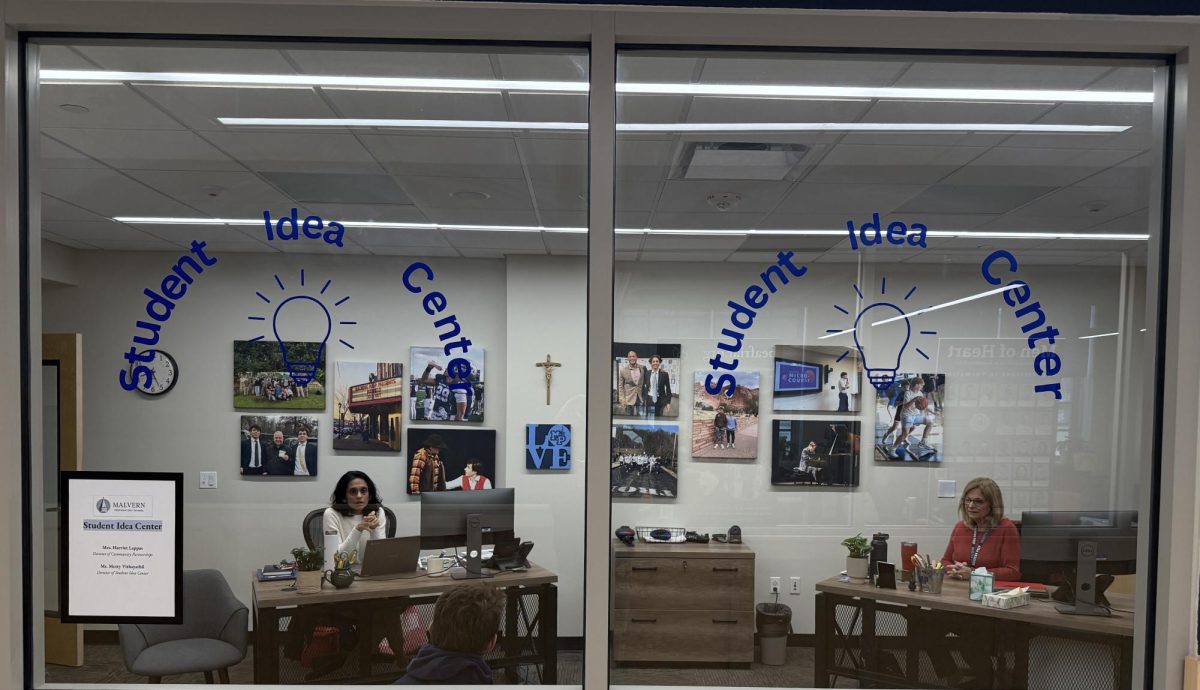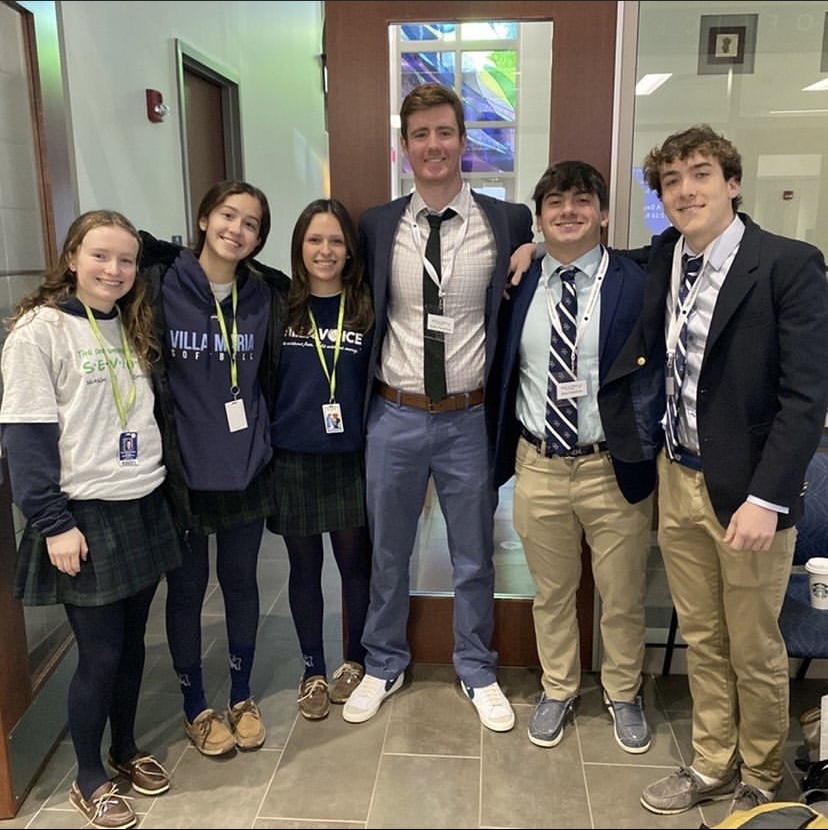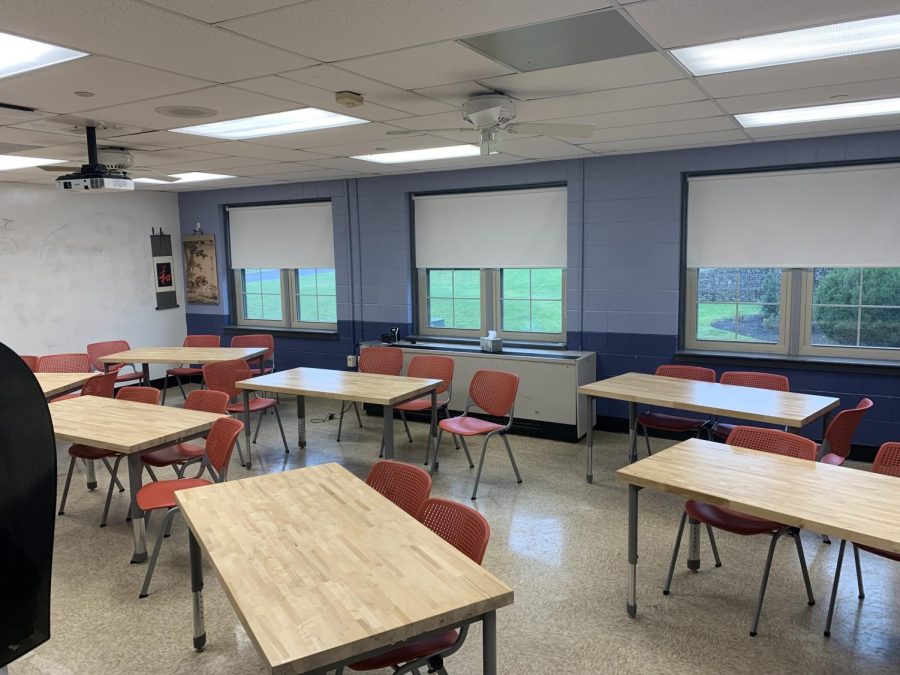
Finding hope and love during challenging times
“For me, the biggest thing is always looking at a crucifix. It symbolizes that suffering is transformed into love,” Poce said.
Mr. Richard Poce, Malvern assistant Dean of Students and theology teacher, has learned many lessons from teaching and studying philosophy. According to the 2015 West Chester University Philosophy newsletter, Poce has two master’s degrees in Philosophy and Religious Studies, and hopes to begin his dissertation concentrating on the relationship between empathy and service.
All of that formal education is nothing compared to the lessons his wife and daughter have taught him.
Mr. Poce and his wife, Mary Ann, have been married for 13 years. “I think I knew I was going to marry her from the time I met her,” Mr. Poce said.
The couple shares the same values. They share the same faith.
In 2011, Mrs. Poce was diagnosed with metastatic brain cancer. Over the past four years she has had six surgeries and undergone chemotherapy treatment.
Their love has helped them through the struggles and suffering of fighting cancer. “It certainly has been hard,” Mr. Poce said. “But it’s still been happy.”
Much of that happiness has stemmed from their 11 year old daughter, Sarah. Sarah has been Mr. and Mrs. Poce’s greatest teacher.
“She’s got quite the personality,” Mr. Poce said. “She’s a funny kid, a little zany.”
Poce says that Sarah’s smile is infectious. When Mr. Poce talks about Sarah he lights up. He chuckles. He grins. He looks off in the other direction and you can tell he’s thinking about Sarah.
“I watch her dance in front of a Pixar Movie that she could watch three times,” Mr. Poce said. “I wish I could watch a movie three time in a row with the same enthusiasm and the same zest for life.”
At the age of 2, Sarah, was diagnosed with Autism then at the age of 4 diagnosed with Rett syndrome. Rett syndrome impacts Sarah’s cognitive and physical functioning.
According to the National Institute of Neurological Disorders and Stroke, “Rett syndrome is a neurodevelopmental disorder that is characterized by a slowing of development, distinctive hand movements, and problems with walking.”
The disease is caused by a genetic mutation to the x chromosome. It affects girls almost exclusively. Girls have a second x chromosome that can compensate for the mutation, but affected boys have no protection from the harmful effects of the disorder. Boys affected with Rett syndrome often die soon after birth.
As Sarah grew up, Poce was able to draw on his philosophical and theological studies to help him cope and understand the blessing that is Sarah. “Jesus asked the Apostles, ‘What does the child have to teach us?’” Mr. Poce said. “Sarah has taught us what life is about.”
 Mr. Poce taught a class at Immaculata University about Jean Vanier, a Catholic philosopher who spent his life working with and helping the disabled community. “Vanier looks at the disabled and asked what do they have to teach us?” Mr. Poce said. “Vanier is a modern St. Francis.”
Mr. Poce taught a class at Immaculata University about Jean Vanier, a Catholic philosopher who spent his life working with and helping the disabled community. “Vanier looks at the disabled and asked what do they have to teach us?” Mr. Poce said. “Vanier is a modern St. Francis.”
Vanier established “L’Arsche” communities to provide better lives for those with developmental and physical disabilities. He found that these people flourished when given a supportive and loving environment, both physically and mentally.
“Their grit, their simplicity, their joy. There’s no pride. There’s no ego,” said Poce. Despite all the hardships [those with special needs] have had, every day is a beautiful day.”
Mr. Poce believes that raising Sarah and seeing her grow and enjoy life, despite her challenges, prepared the family for his wife’s cancer diagnosis and continuing treatment.
Whether it’s helping Sarah face her fears as she goes down the stairs every morning, or helping her eat dinner, Mr. and Mrs. Poce have turned suffering into love. They find God’s grace shining through Sarah. Her disabilities may keep her from performing basic functions, but they do not keep her from showing her basic emotions. Happiness. Care. Love.
Sarah understands her mother’s current medical struggles in her own way. She misses her mother during her hospital stays. When Sarah visits Mrs. Poce in the hospital, she simply hugs her. She even tried to drag Mrs. Poce out of the hospital by her wheelchair this past summer. Through this pain and separation Sarah still wakes up with a smile on her face everyday.
“If we can tap into her joy a little bit, we get to see what heaven is like,” Mr. Poce said. “Children and people with disabilities have a lot to teach the world.”
We should all draw inspiration from the “zest for life.” We should recognize the beauty and blessing of everyday, despite whatever our challenges may be.
“Sometimes in the past I thought maybe it was a burden. Now I don’t think of it so much as a burden,” Mr. Poce said. “I took it as a grace.”
Mrs. Poce continues to be strong and resilient. She gets up in the middle of the night to sit and help Sarah deal with her insomnia. She prays for others who are suffering. She wishes Mr. Poce a “great day” when he leaves the house in the morning.
“I have to laugh and smile,” said Poce. “Nothing is perfect, but we can share our life together.”
When Mrs. Poce last came home from the hospital, she had only one thing on her mind. All she wanted to do was wake up and make Sarah’s lunch for school.
“Inspiration abounds all around us, sometimes we just have to look,” said Mr. Poce.


